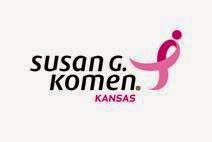Mutations are changes in the genetic code of a gene that
affect its function. Inherited gene mutations can be passed on from a parent to a child. Some inherited
gene mutations increase breast cancer risk. Genetic testing gives people the chance to learn if their
family history of breast cancer is likely due to an inherited gene mutation.
BRCA1 and BRCA2 (BReast CAncer genes 1 and 2) are the
best-known genes linked to breast cancer.
People who have a BRCA1 or BRCA2 mutation have a greatly
increased risk of breast cancer and (for women) ovarian cancer. Although
genetic testing for BRCA1 and BRCA2 is widely advertised, testing is only
recommended for certain people, including those with:- A personal history of breast cancer at age 50 or younger
- A personal history of triple negative breast cancer (breast cancer that is estrogen receptor-negative, progesterone receptor-negative and HER2/neu receptor-negative)
- A personal or family history of male breast cancer
- A personal or family history of bilateral breast cancer (cancer in both breasts)
- A personal history of ovarian cancer
- A parent, sibling, child, grandparent, grandchild, uncle, aunt, nephew, niece or first cousin diagnosed with breast cancer at age 45 or younger
- A mother, sister, daughter, grandmother, granddaughter, aunt, niece or first cousin diagnosed with ovarian cancer
- A family history of both breast and ovarian cancers on the same side of the family (either mother's or father's side of the family)
- Ashkenazi Jewish heritage and a family history of breast or ovarian cancer
There is only a very small chance that your family carries a BRCA1/2 mutation if:
- You or an immediate family member is the only person in your family with breast cancer
- The breast cancers in your family all occurred at older ages
A health care provider or genetic counselor can talk with
you about genetic testing issues. For more information on genetic counseling,
visit the National Cancer Institute’s website (or call its hotline at
1-800-4-CANCER) or visit the National Society of Genetic Counselors’ website.
For more information on inherited gene mutations, visit:
http://ww5.komen.org/BreastCancer/
GeneMutationsampGeneticTesting.html
No comments:
Post a Comment